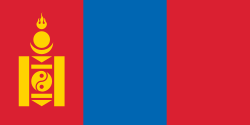This article contains promotional content .(February 2018) |
 | |
| Sport | Cricket |
|---|---|
| Founded | 2007 |
| Affiliation | International Cricket Council (ICC) |
| Affiliation date | 2021 |
| Regional affiliation | Asian Cricket Council |
| Affiliation date | 2025 |
| Location | Mongolia |
| Official website | |
| cfu | |
| | |
The Mongolia Cricket Association (MCA) was established in 2007 by Battulga Gombo in the Mongolian capital of Ulaanbaatar. [1] [2]
Contents
On July 24, 2025, the Mongolia Cricket Association joined the Asian Cricket Council (ACC). [3]
